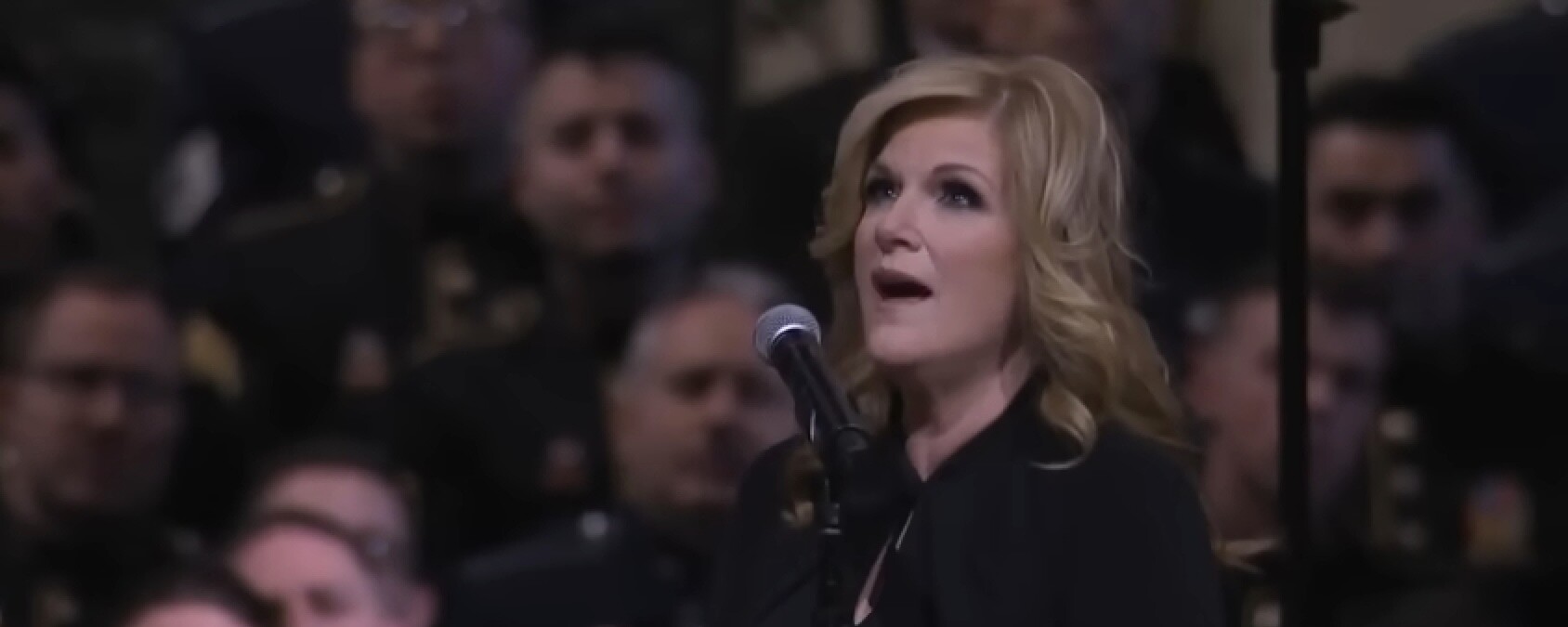Southern Baptist Jimmy Carter’s funeral was marred by the singing of John Lennon’s “Imagine” at the National Cathedral. Garth Brooks and his wife Trisha Yearwood performed the song at a Christian funeral in a Christian church.
Fox News reports that “Imagine” was Carter’s favorite song, and cited a social media message which noted that the song was also played at Rosalynn Carter’s funeral. Presumably, because Carter’s death was assumed to be imminent for a long time, Carter planned aspects of his funeral — perhaps it was his wish to have the song sung at his funeral. While the lyrics of the song are inconsistent with Carter’s religion, they are quite consistent with his approach to world events.
Lennon’s lyrics begin with “Imagine there’s no heaven/it’s easy if you try, No hell below us/above us only sky/Imagine all the people, Livin’ for today.” A more irreligious lyric would be hard to think of, and it’s hard to believe Carter agreed with those words.
Carter after all told Playboy magazine that he prayed often and believed in the Bible and that as a Christian he acknowledged that “we are all sinful and the judgment comes from God, not from another human being.” He said further that he believed in “the teachings of Christ.” As president, Carter regularly attended the First Baptist Church in Washington. He was a Sunday School teacher who knew Christian Scriptures. Why “Imagine” would be his favorite song is a mystery.
It is a mystery, however, only if you neglect to read the song’s other lyrics. Lennon’s song continues: “Imagine there’s no countries, it isn’t hard to do/nothing to kill or die for, and no religion, too/Imagine all the people, livin’ life in peace … You may say I’m a dreamer, but I’m not the only one/I hope someday you’ll join us, and the world will be as one … Imagine all the people, sharing all the world … I hope someday you’ll join us, and the world will live as one.” Those lyrics are consistent with Jimmy Carter’s worldview. (RELATED: Carter Was to Reagan What Buchanan Was to Lincoln)
And not just Carter’s worldview but the worldview of liberalism, which James Burnham accurately described as the “ideology of Western suicide.” John Lennon’s dream was for human beings to shred their attachments to their countries and share our one world. Then, he dreamed, there would be nothing to fight over, nothing to die for, “and the world will live as one.”
Such sentiments could be seen in Carter’s “human rights” approach to world politics — an approach that ironically led to greater human rights violations in countries like Iran and Nicaragua. An approach that led Carter to proclaim that we were free of our “inordinate fear of communism” — the world’s greatest human rights violator, responsible for the deaths of over 100 million people. An approach that led him to ignore Palestinian crimes while lecturing Israel about their supposed human rights failings. (RELATED: Presidents Jimmy and Joe: Goodbye and Good Riddance)
Carter also appointed some key foreign policy advisers who shared Lennon’s one-world outlook. U.N. Ambassador Andrew Young infamously called Iran’s radical revolutionary clerical leader Ayatollah Khomeini a “saint.” Secretary of State Cyrus Vance said that the United States and the Soviet Union had “similar dreams and aspirations.”
In his Nobel lecture, Carter praised Woodrow Wilson for his efforts to create the League of Nations, and Cordell Hull for his role in founding the United Nations. He said that global challenges must be met with “an emphasis on peace, in harmony with others.” (“The world will live as one.”) World peace, he claimed, will only come about when the decisions of the U.N. Security Council are strictly enforced. Carter called himself “a citizen of a troubled world” and hoped that the “international community” would “negotiate global standards” to achieve global peace. (“Imagine there’s no countries.”)
Jimmy Carter was a man out of his depth as president of a great power in a very dangerous world. He was infected by the ideology of liberalism which offers a utopian vision of “mankind” and the notion of perpetual peace. Imagine that.
READ MORE from Francis P. Sempa:
Media Commentators Seek to Regain Trust: It Won’t Work
























